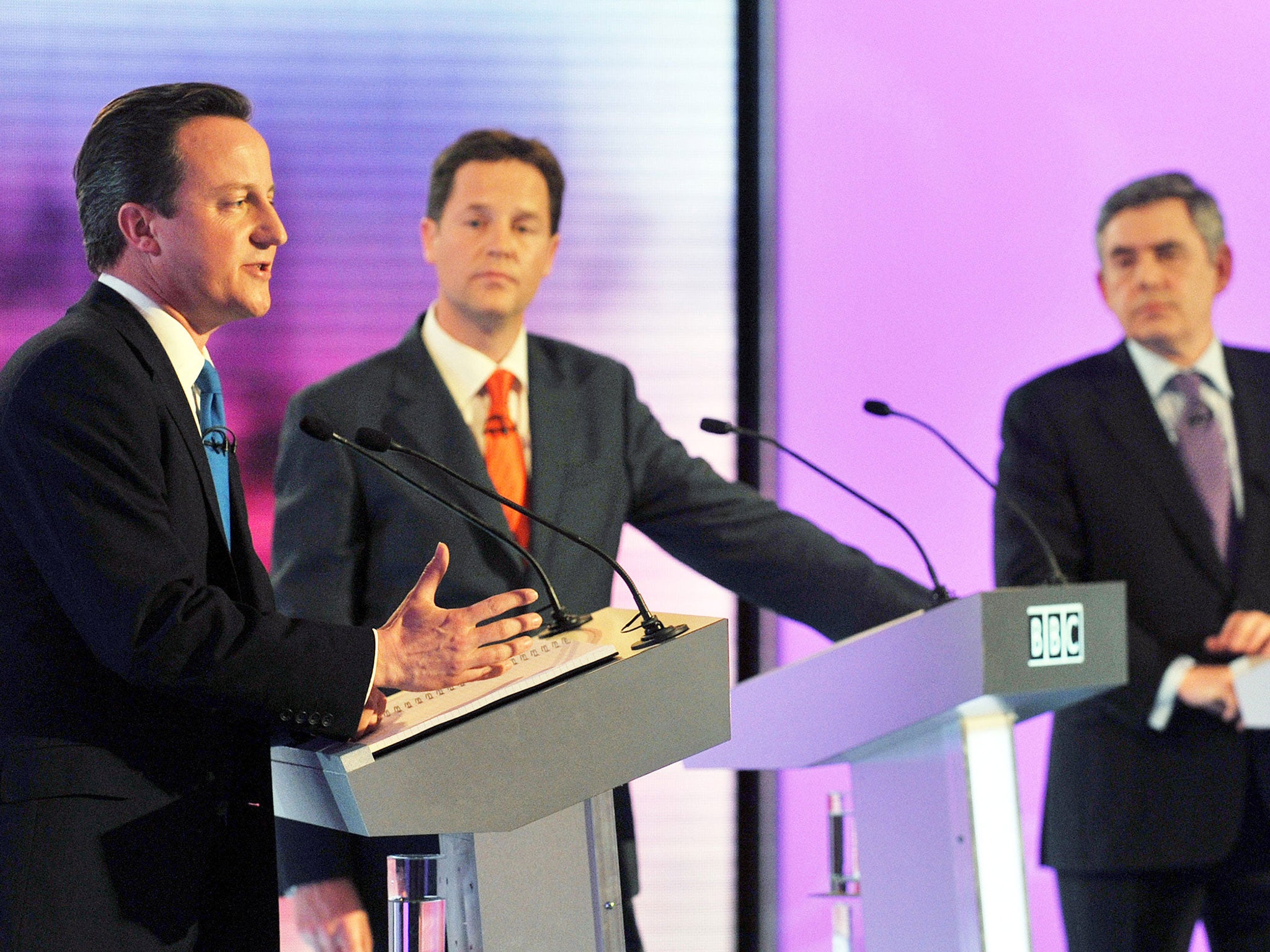EU referendum: Complacency could still be David Cameron's undoing
The Prime Minister faces a steep ascent up a deceptively treacherous mountain, not a gentle stroll in the hills

Your support helps us to tell the story
From reproductive rights to climate change to Big Tech, The Independent is on the ground when the story is developing. Whether it's investigating the financials of Elon Musk's pro-Trump PAC or producing our latest documentary, 'The A Word', which shines a light on the American women fighting for reproductive rights, we know how important it is to parse out the facts from the messaging.
At such a critical moment in US history, we need reporters on the ground. Your donation allows us to keep sending journalists to speak to both sides of the story.
The Independent is trusted by Americans across the entire political spectrum. And unlike many other quality news outlets, we choose not to lock Americans out of our reporting and analysis with paywalls. We believe quality journalism should be available to everyone, paid for by those who can afford it.
Your support makes all the difference.Shortly before he first become Prime Minister in 2010, David Cameron delivered a barnstorming performance on TV in which he flayed his then rivals, Nick Clegg and Gordon Brown, as craven dupes of the EU “who give in to everything that comes out of Brussels”. To his many Eurosceptic fans, this was vintage stuff. After all, he had just ordered the Tories to quit the main centre-right group in the European Parliament – too pro-European in his view – and lined them up with a ragbag of eccentric, far-right MEPs, some ultra-nationalists, others anti-Semites.
As Mr Cameron rallies his allies in a now deeply divided Cabinet behind the European cause ahead of the vote on 23 June, the Brexiteers will undoubtedly want to remind the public of Mr Cameron’s old form as a would-be St George, intent on skewering the Euro-dragon. How much embarrassment this causes depends on how he responds to the charge of flip-flopping.
The Prime Minister would be well advised – like St Paul – to make a virtue of his new-found zeal for a cause that he once despised. Either way, he must lead the campaign ahead of the referendum with much more fire and conviction than he showed in the shambolic lead-up to the independence referendum in Scotland, when a kind of natural inertia and passionless diffidence on his part left the 300-year-old union hanging by a thread.
Mr Cameron got lucky in Scotland. Like his old hero, Margaret Thatcher, he is often lucky. The problem with being blessed with good fortune, however, is that it invites complacency. Baroness Thatcher ended up believing herself invincible and so, against a mass of sound advice to the contrary, ploughed on with the poll tax. She was toppled soon after. Mr Cameron must not make the same mistake over Europe and try to wing it in his usual way, with glib phrases about how his Herculean efforts have secured Britain a new deal in the club. The Prime Minister may be right to assume that Britons are not instinctive revolutionaries and that – as in Scotland – caution about taking leaps into the dark will play into the hands of those defending the status quo. But he would be mad to bank on this.
In Michael Gove, he has a formidable opponent, all the more so because there is not a scintilla of personal hostility between the two men. On the contrary, Mr Gove has taken pains to remind us what a fine fellow and a great Prime Minister he thinks Mr Cameron is – except on Europe. But, for all his legendary politeness, Mr Gove has a rapier-sharp mind and can be relied upon to press home well thought-out arguments in favour of a British exit. He has failed to lure Theresa May into his camp, but that loss is more than compensated for by the addition of Boris Johnson. With the breezy, populist Mayor joining forces with the cerebral minister, Mr Cameron’s team is up against it.
His own closest ally, the Chancellor, George Osborne, has none of Mr Johnson’s easy charm and way with crowds. Mr Johnson is a bigger hitter with the public but many of Mr Cameron’s other allies are same-olds without much pulling power. We also do not yet know whether Ms May is going to be a conductor or just a passenger on the Cameron Euro-bus. She may feel she has done enough for him simply by not joining the Brexit camp. She is also, let us not forget, interested in replacing Mr Cameron at some stage, and may feel reluctant to antagonise the Eurosceptic constituency in the Tory party by taking a high profile in the In campaign.
In short, the Prime Minister faces a steep ascent up a deceptively treacherous mountain, not a gentle stroll in the hills. It is vital for all our sakes that he gets to the top rather than Mr Gove’s team, but let us hope he realises he must fight for victory, not take it for granted.
Join our commenting forum
Join thought-provoking conversations, follow other Independent readers and see their replies
Comments